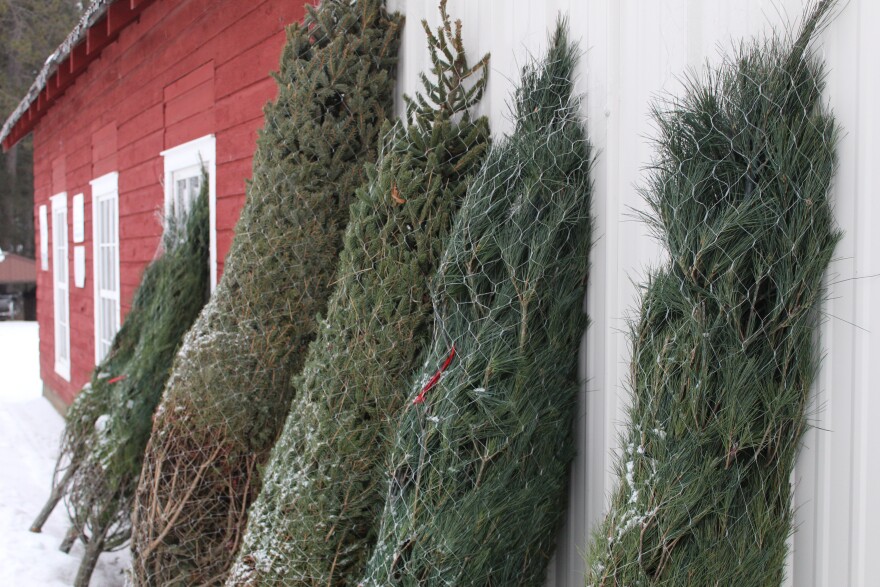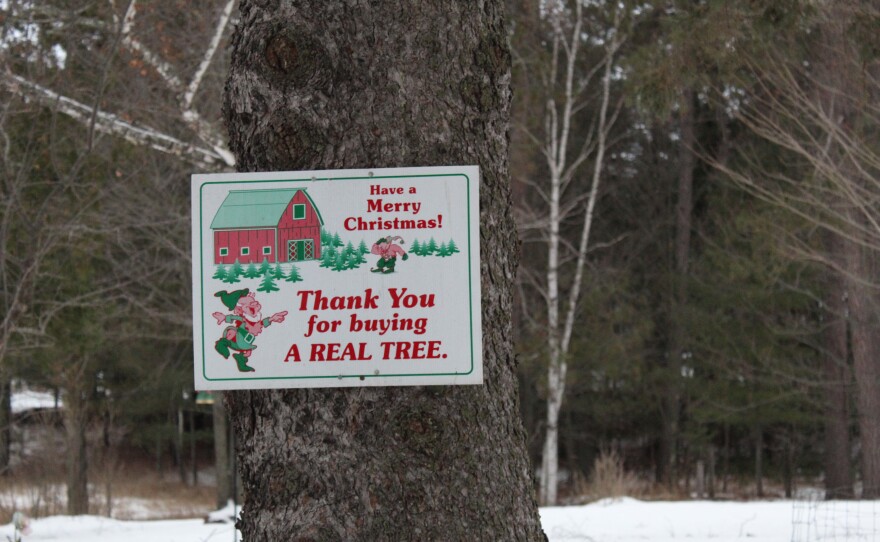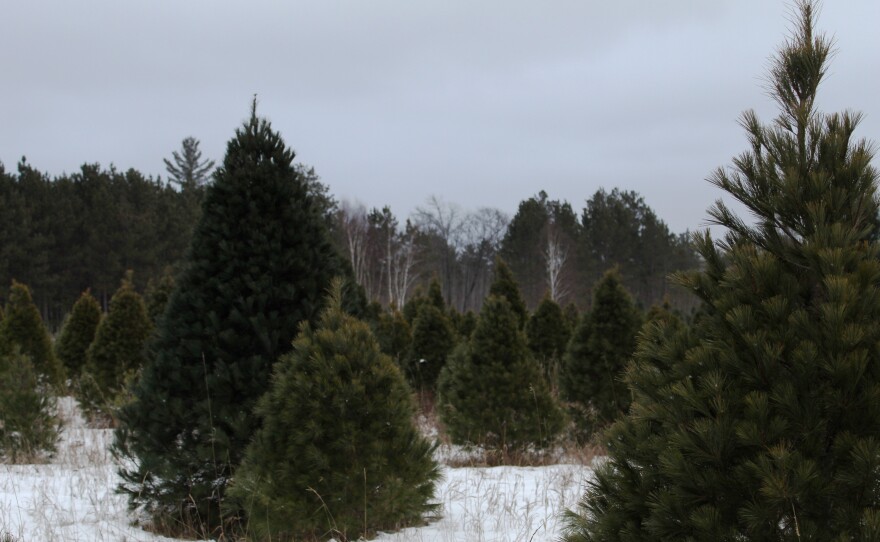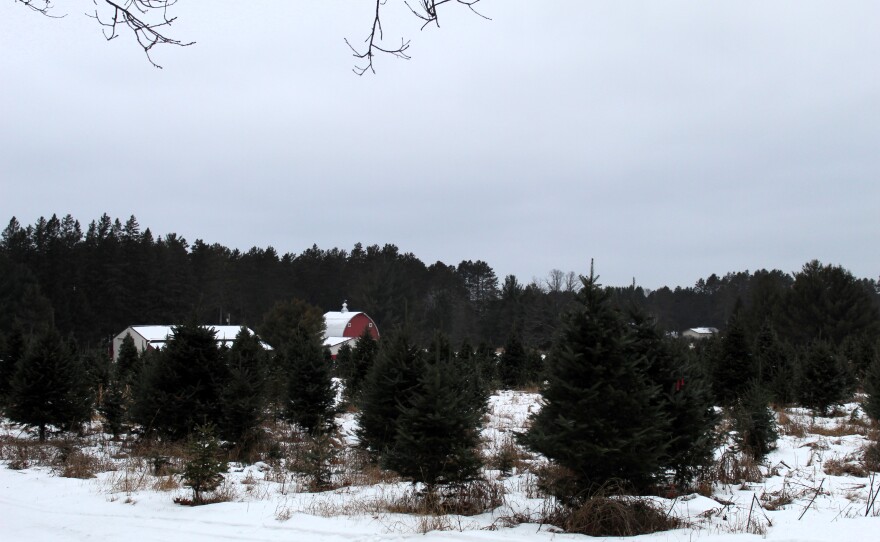GRAND RAPIDS — It’s likely there will be a Christmas tree shortage in the early 2030s. Christmas tree farmers can see a supply shortfall from nearly a decade out.
Carl Wegner has been a Christmas tree farmer at Wegner's Tree Farm since the early 1970s. He remembers a few years ago when his tree farm in Blackberry received two or three calls a day from places wanting to buy trees to sell.
“Couldn’t find them anywhere, there was a real shortage of trees," Wegner said. "And a lot of those shortages are a result of drought. We’ve had severe droughts back in the ‘70s and ‘80s where you would have the whole summer where you hardly had any rain.
"Well, all the trees that you plant, die. So nine or 10 years down the road, you don’t have those trees to sell.”
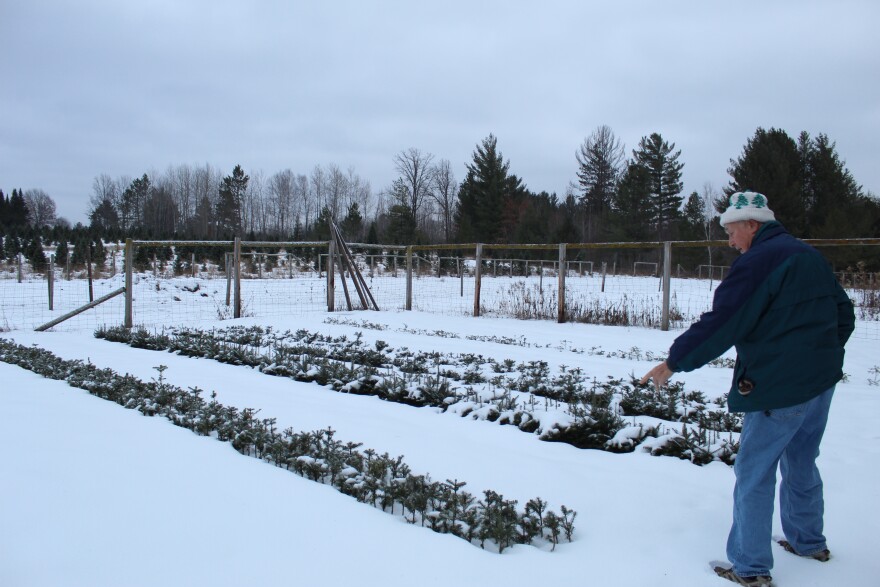
Wegner said three of the last four years have had drought, and in 2021 and '22, they lost nearly 90% of the trees they transplanted that spring.
Climate projections say in the Midwest, droughts are going to be more frequent and intense. It's one of the climate change impacts that the U.S. Department of Agriculture Midwest Climate Hub and Michigan State University Extension highlighted in a research bulletin on Christmas trees published earlier this year.
The researchers noticed a lack of specific information available for Christmas tree growers to understand the potential impacts of climate change. USDA research fellow Josh Bendorf said they wanted to help narrow down all the climate information that’s out there.
“A lot of it comes back to temperature and precipitation — not just on an annual level but you know how that varies from season to season," Bendorf said. "We focused in on some of the cold season variables, things like growing season length, last spring frost date, late season freezes, cold snaps, things like that.
"Because these are perennial crops so we need to consider not just the warm season but the cold season as well. Things like the overwintering of pests."
Unlike other farmers, Christmas tree growers also have to worry about the appearance of their crop. Michigan State University Extension Christmas tree educator Bill Lindberg said warmer falls caused by climate change may impact trees’ ability to retain their needles.
“We're getting pushed from both ends. So everyone wants their Christmas tree earlier and earlier into fall, and at the same time, our cold temperatures aren't coming till later and later in the fall," Lindberg said. "Yeah, there's definitely a potential issue there because we know from consumer surveys that needle drop after getting the tree analysis, the number one thing that consumers do not want.”
Wegner said these days, wholesalers — who make up 95% of his business — want all their trees before Thanksgiving. And more than half of the farm’s cut-your-own customers come on Thanksgiving weekend.
But he said he hasn’t experienced needle retention issues. And to him, the warm fall has its benefits.
“We’ve seen a lot better working conditions because there hasn’t been the snow and the cold. I mean, we spend every day in November out cutting and baling and hauling trees in the yard. It’s been a lot better the last few years," he said.
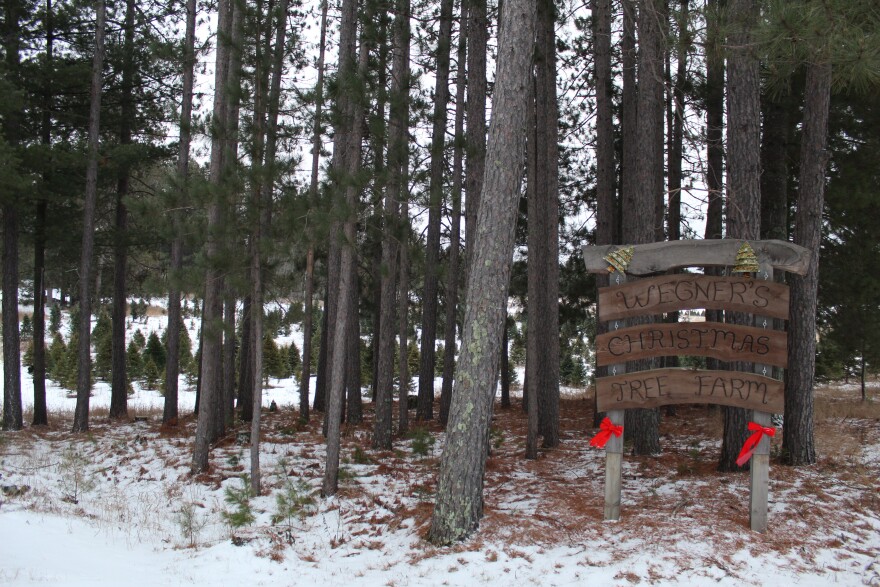
Customers coming earlier isn’t the only change Wegner’s seen in his 50 years in the industry. At one time, there were over 50 members of the Itasca County Christmas Tree Growers Association, he said. Now there’s just three.
“The new people you talk to, they want to grow Christmas trees, They can see they can make money doing it," Wegner said. " ... They plant trees — the first couple years, it’s easy.”
But as the trees get bigger, there’s more work to be done. By the time a tree is transplanted into the field, it’s already 5 years old — five years of work collecting, drying and planting seeds, and then keeping the infant trees alive.
On Wegner’s 70 acres, it takes three weeks each year to transplant trees. Then there’s the fertilizing, the mowing between rows and shearing the trees so they keep their perfect conical shape. As you hit late summer, you’ve got to start marking trees for sale and spraying them with green dye and clear coat. Then, there’s the three weeks of harvesting for wholesalers.
When all’s said in done, Christmastime is actually the slow season for Christmas tree farmers.
Lindberg said making consumers aware of all the work that goes into the Christmas tree they bring home was an additional benefit of the research publication.
“It can take between six and 10 years of growing that tree every single year and keeping it happy and healthy and growing before it's ready to be harvested," he said. "I think just a better appreciation from consumers of what it takes to grow that tree and all the other. And value of that tree.”
Funding for this environmental story was provided by the Minnesota Environment and Natural Resources Trust Fund as recommended by the Legislative-Citizen Commission on Minnesota Resources (LCCMR).
-
Events this week include a pancake fundraiser and curling watch parties in Grand Rapids, "MusiKaravan" in Hibbing, Bemidji Contra Dance and a symphony orchestra concert in Virginia.
-
Plus: Northern, MN to become Northern MN's newest city; and 14 Northland athletes competed in the Alpine Ski state tournament Feb. 10, 2026.
-
Bryan Odeen and Brandon Hepola, two of the organizers of a new benefit album for a Minnesota mutual aid group, joined "Headwaters" to talk about the project.
-
Minneapolis businesses are estimated to have lost $10 to $20 million in sales each week of Operation Metro Surge, which began in December 2025.
-
An administrative law judge ruled in favor of the township's petition to become a city while denying Bemidji's counterpetition to redraw its boundary around Lake Bemidji.
-
The School Board voted down the alternative schedule 4-2. In the coming months, the district will have to figure out how else to cut 12% of its budget.
-
Three rural Northern Minnesotans placed at the state alpine ski meet in Biwabik on Feb. 10, 2026.
-
KAXE's weekly list of concerts near you features Sam Miltich & The Clearwater Hot Club, In Stereo, Sugar on the Roof and Grand Holler.
-
“Area Voices” hits the road to visit The Crossing Arts Alliance's 8x8 Art Auction and Fundraiser in Brainerd. Andrew Dziengel talked with the Executive Director Jennifer Jacquot-DeVries and participating artists.
-
Duran, a Republican from Bemidji, was first elected to the Minnesota Legislature in 2024.


